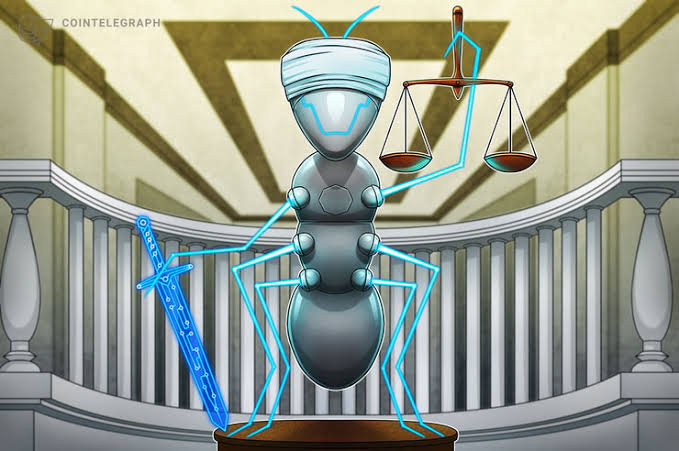On-chain tool to seize crypto reportedly active, why this will not be adopted by major blockchains

When you take consensus off the blockchain, you break the rules of the code, and that is a needed pass-through phase to ensure the functionality of the network.
In a bid to please regulators numerous blockchain developers will go the extra mile to build nonsense, structures that basically break the programs consensus mechanisms are meant to enforce, so in essence, the blockchains' rules.
The use of blockchain for governance is something that is designed to draw governance to anything close to perfection or at least fairness. This is something we cannot find in legacy governance models because for starters, the system leans on a very centralized body that most often than not requires the opinions or thoughts-to-command of one man.
Code as law is designed to replace this flawed system because in-code lies something not present(as a pair) in the current governmental bodies.
What is that?
Risk and Reward
Risk and reward is how blockchain works with crypto, without both you either have a mere protocol that will sooner die off if no monetization model is being introduced or a centralized protocol printing value daily with zero consequences for bad actors within the system.
The latter is how the current system of government is, there is just a huge amount of rewards piled up with zero risks involved in making the wrong decision - fact is, there are actually no wrong decisions, just bad ones that do not affect the party making them, instead, it rewards them bountifully, thus the reasons for the continuity.
Risk and rewards is the law of programs, you introduce a false block to the chain, you risk your stake and reputation. Any dirty business can cost you because a system exists that distributes governance power in that decisions are now of a collective rather than one person, this is what decentralized governance is all about.
And now, someone is trying to please regulators by deploying a system with two governance organizations "the blockchain participants and the state government" false crypto and DeFi advocate innit?
A United States federal court recently used on-chain tech to lock criminals out of their crypto on the Jurat Network. Founder Mike Kanovitz admits the technology could see hate from crypto purists.
He's right about the hate, but calling us purists? Haha, it just seems he knows he's not one of us so he has to take the step to make us look crazy.
If excessively holding onto the rules of crypto and blockchain when it comes to decentralization, individual asset/data ownership and control makes us crazies, we will take it for a gold medal Mike.
On Aug. 8, a U.S. District Court used Jurat’s on-chain enforcement tool to lock several sanctioned individuals out of their crypto accounts. These individuals were sanctioned for money laundering and using ransomware to extort cryptocurrency payments to benefit North Korea’s weapons program.
The Jurat blockchain was launched in late 2022, formed via a fork of the Bitcoin blockchain. The technology connects blockchain nodes with court dockets to enforce court orders.
During a lawsuit, each party provides the court with a competing hash for what that side wants the court to do. When a ruling is made, the court simply pastes the hash of the winning side, and the software nodes will execute the order autonomously once it accesses the online court docket.
Kanovitz said the tool currently only works in the United States and only on the JCT blockchain. However, he hopes to bring JCT’s technology into other Ethereum Virtual Machine-compatible blockchains in the future. cointelegraph.com
First of all, court rulings are flawed, many of the time. The concept of allowing one man to decide the fate of something is just madness, it has never made any sense to me.
So in as much as bad actors on-chain need to be stopped, relying on a system like this that could be used for way more than "enforcing" court orders isn't the way to go.
I couldn't help but notice the part that says each party has to present a hash and the winning party's hash is what gets pasted on-chain. So the question now is "in absence of these hashes, can the court not still execute their whatever fucked up order on the chain?"
The answer to this question is critical to how much damage can be done with such a tool.
Their aim to expand to EVM chains is something I hope to not see come to reality, if you were looking for more reasons to buy bitcoin, this is it because if there's any chain that won't adopt such nonsense key to centralization it would be Bitcoin.
Posted Using LeoFinance Alpha
Congratulations!
Your post has been manually curated and reblogged.
You can follow our curation trail on Hive.Vote
If you want to support us and the authors we vote for you can upvote this comment or delegate some Hive Power to our account. Thanks!
Propose a worthy post by mentioning us in the post or in a comment.
We reblog curated posts, follow us if you wish to see them in your feed.